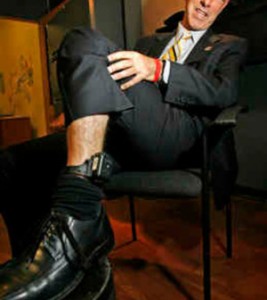Published in: Context Florida
The growing conventional wisdom is that former Gov. Charlie Crist is a shoo-in to become Florida’s next governor. Conventional wisdom is wrong.
The mainstream media in Florida is going to endorse Charlie. They love him because he loves the press and knows how to whip up a crowd with his rhetorical talents. There certainly is no question that Charlie is a gifted speaker. He’s also photogenic and personable. He supports everything that everyone wants.
But the problem is that Charlie has been on both sides of just about every issue at one time or another, save for the environment.
A recent blog mentioned that Charlie’s problem is not with elected Democrats but with the party’s rank-and-file. Hogwash.
Grass-roots Dems don’t really care who their nominee is so long as he or she has the chance to win. Remember that no Democrat has been elected governor since Lawton Chiles. It’s the elected Democrats who are worried because of the significant baggage that Charlie will lug into the race.
Now that Alex Sink has dropped out of the race, Charlie has a clear shot at the nomination, unless U.S. Sen. Bill Nelson decides to get into the race, which is unlikely. I mean Nelson is in the twilight of his career and he has more than five years left in his Senate term. More important, he never has to solicit another campaign contribution again.
As for Gov. Rick Scott, he certainly is not the fave among reporters. However, he has kept his eye on the ball on the one issue that matters most to everyone – job creation.
Florida’s job growth has been significant and the state has recovered from the Great Recession better than most states. Florida’s unemployment rate continues improve and remains below the national rate.
In addition, Scott has cut taxes, reduced state debt by $2 billion, made state employees pay into their pensions, reduced property taxes and held teachers to account for the performance of their students. Sure he cut education spending, but so did just about every other governor in the country.
At the same time, when state revenues started increasing, he invested heavily in education. This governor even called for the state’s higher education system to produce a $10,000. Had a Democratic governor proposed this, the newspapers would have pronounced him or her a genius.
Mind you that this election will be close because of what Scott is not. He’s not slick, he’s not a rhetorical stem-winder, he’s not a back slapper. He’s not, well, a politician.
He’s a businessman who promised to focus on job creation. As a result, Florida was recently named by Area Development, a business magazine, as the No. 1 state for renewed consideration after the recession.
Convincing companies to move to our state isn’t easy. It takes time and perseverance, and a lot of other states are trying to do the same thing. The difference is that Scott and this Legislature are making Florida attractive to companies. Job creation is the key and Scott has delivered.


